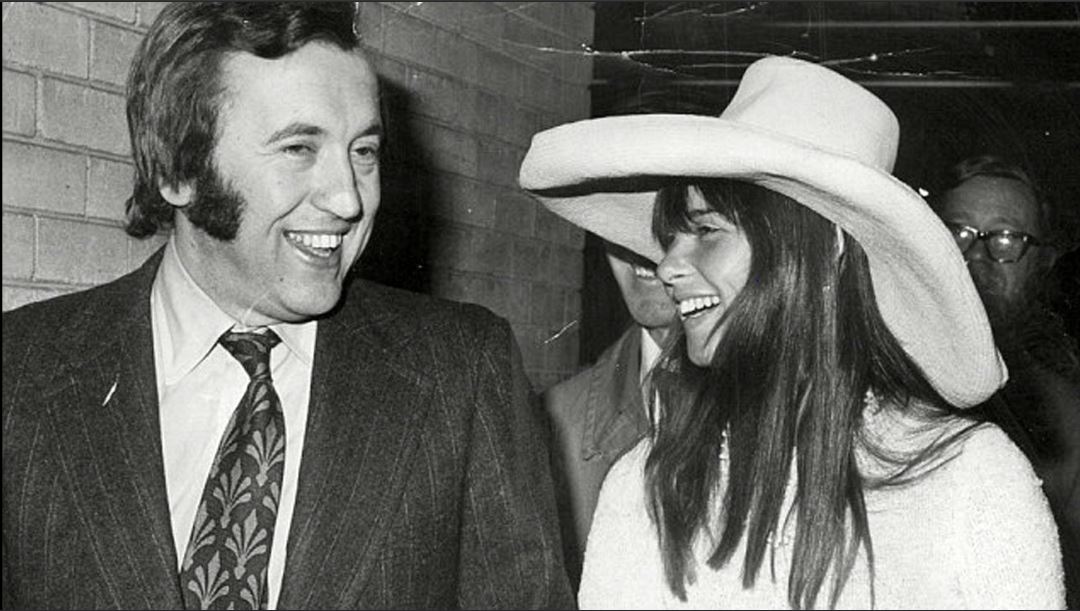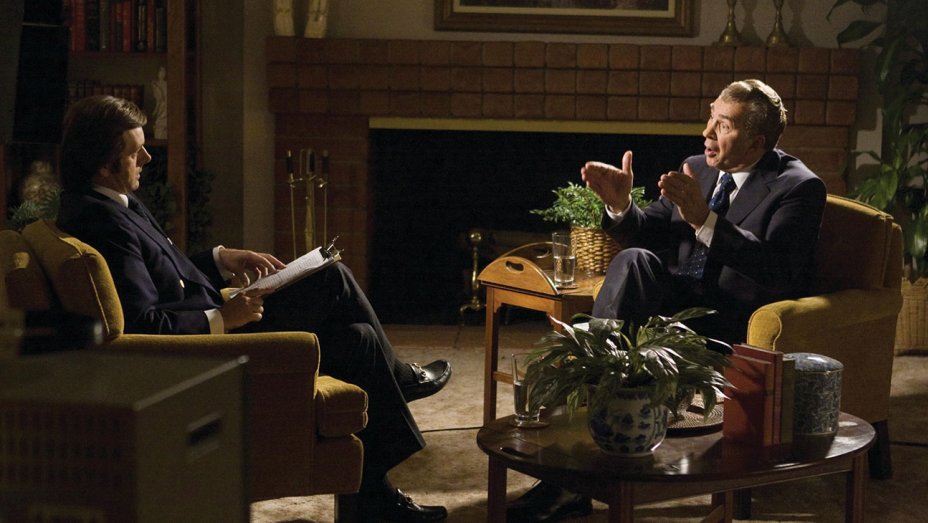‘Frost/Nixon’ is a political movie based on real events that solely revolves around a single series of interviews. That premise might put off a few potential viewers. However, the Ron Howard directorial manages to weave a gripping tale of swinging power dynamics and rounded characterization. The movie, although filled with several creative liberties, does manage to portray the conflicts of the period well: showing just how integral the events had been to American politics.
In a nutshell, the movie revolves around Nixon’s first interview after resigning from the United States’ Presidency, conducted by a British talk show host. The role of Nixon is played by Frank Langella while Michael Sheen plays the character of David Frost. Several viewers would have wondered about the historical background of the movie and how true it stays to original facts.
The Background: The Watergate Scandal
The story of ‘Frost/Nixon’ is a result of the Watergate Scandal that led to the resignation of Richard Nixon. In 1972, Nixon was gearing up to run for re-election at a time when the on-going Vietnam War proved to make the American political climate rather unforgiving. Hence, Nixon decided to take some bold actions to win the White House back, including illegal espionage on his political opponents.
The espionage was discovered when five burglars were caught at the Democratic National Committee’s Watergate building on June 17. However, this wasn’t the first time. Nixon’s men had broken into the building in May that year (but hadn’t been caught). They had stolen top-secret documents and attempted to bug the telephones. Since the wiretap did not function properly, a group of five men had to break in again, on June 17, when they were caught. This is how Nixon’s plan was discovered. However, Nixon committed more serious crimes when he tried to obstruct justice by paying money to the captured burglars to stay shut, and “instruct the Central Intelligence Agency (CIA) to impede the FBI’s investigation of the crime.” (source). A couple of Washington Post reporters, Bob Woodward and Carl Bernstein would later go on to uncover Nixon’s shady behind-the-scenes activities: a journalistic feat which would make them winners of the Pulitzer Prize.
Nixon was almost certainly looking at impeachment. However, he decided to resign before that but did not offer an apology for his crimes. President Ford granted him the presidential pardon, leading the public to yearn for some form of closure.
The Interviews
However, ‘Frost/Nixon’ does not focus on the Watergate Scandal at all. Instead, the movie revolves around one of the first public appearances that Nixon made after staying out of the public’s eye post his resignation. However, Nixon granted a British talk show host, David Frost, rights to an exclusive interview since he saw it as an opportunity to absolve himself in the public eye. Nixon also saw the interviews as an opportunity to earn some money. “And in David Frost, who had no discernible political philosophy and a reputation as a soft-soap interviewer, Nixon seemed to have found the perfect instrument for his rehabilitation,” said James Reston Jr. who was recruited by Frost for the interview’s preparation (Sam Rockwell plays his role in the 2008 movie).

The fee that Nixon charged for the interviews was $600,000, as mentioned in the film. However, he also demanded a 20% share of any profits: something which is not depicted.
A rather moving part of the movie comes when Nixon calls Frost late at night, telling him about how both of them have humble origins. However, that call actually never happened. It was apparently one of the fictionalizations in the movie.
Yet, the most crucial bit in the film is certainly the time Nixon admits his guilt. Well, that event played out slightly differently in reality. Frost did discover new evidence, thanks to Reston Jr. In the movie, Frost seems to suddenly turn the tables on the final day of the interview. However, that was done for dramatic purposes. “In the broadcast, the interviewer’s victory seemed quick, and Nixon’s admission seemed to come seamlessly. In reality, it was painfully extracted from a slow, grinding process over two days,” reveals Reston Jr.
Additionally, Brennan stopping the shooting midway when Nixon starts to admit his guilt was also, apparently fictionalized. In reality, Nixon’s team had painstakingly prepared the former president into an admission of guilt. “The final session was suddenly interrupted, not by a blazing row as in the Hollywood version, but by Brennan holding up a notice to Frost with the words: ‘Let him talk,'” reveals Jonathan Aitken, Nixon’s biographer. However, ‘Frost/Nixon’ gets one of the most impactful dialogues right (as in, it was actually uttered by Nixon): “Well, when the president does it, that means that it is not illegal.” You can read an edited transcript of the entire interview here.
Lastly, another tidbit that the movie fictionalizes is the meeting of Frost and Caroline Cushing. In reality, the two had been dating for more than five years before the interview.

In conclusion, while the film takes several creative liberties, it portrays the overall political climate and impact authentically. “On May 4, 1977, forty-five million Americans watched Frost elicit a sorrowful admission from Nixon about his part in the scandal: “I let down my friends,” the ex-president conceded. “I let down the country. I let down our system of government, and the dreams of all those young people that ought to get into government but now think it too corrupt….I let the American people down, and I have to carry that burden with me the rest of my life”
Read More: Best Movies About Presidents


You must be logged in to post a comment.